It Grain
“An earlier version of this article misstated Modern Farmer’s new ‘it’ grain. It is sorghum, not quinoa.”
New York City, July 12, 2015

★★★★ It was hard to tell if the sun had been up when the drinking glass — kicked from the top of a filing cabinet by a foot escaping the bottom rail of the top bunk — smashed on the floor. Certainly the daylight was coming around the edges of the blinds by the time the last of the discoverable shards had been swept or wiped up. Hours later, in the full sun, the asphalt patching on the edge of the half-rebuilt roadway of Amsterdam Avenue was oozing tar. In the Park, the grass was dry enough to sit on to eat lunch, or to snub a sandwich and eat pastries. Garbage waiting at a collection point spread noisome fumes over the pathway. The children set off to try to find a playground and abandoned the search in favor of climbing rocks, scrambling up and down in the dappled and bearable shade. Clouds covered the late afternoon, the dimmed sun still standing surprisingly high in the sky. The air in the piano lesson was enervating. Evening was blue again and still hot to walk out into. Pink bars spread in the west, and pink traced the water off a point on the New Jersey bank of the river.
A Compendium of Bullshit
by Rachel Stone

Most people don’t have lives that make interesting memoirs. But change your name, background, or significant plot details, and the narrative gets more compelling: Janet Smith, a white woman from an upper middle-class background in a Boston suburb occasionally working as a babysitter and Lyft driver in between shifts as a non-employee at one of the less disreputable viral aggregators, becomes Lorde Winters, an Inuit woman who, after climate change destroyed her village in Greenland, came to sunny Los Angeles, where she found work as a hotel maid and eventually as a nanny for a Los Angeles family made wealthy by their vast pornography empire, the subject of her tell-all book.
The most recent memoir to follow this bullshit blueprint is Primates of Park Avenue, but Wednesday Martin is far from the first author to write plot holes “big enough to drive an Escalade through.” Can’t remember if a book is true or not? Come, enter the compendium of bullshit.
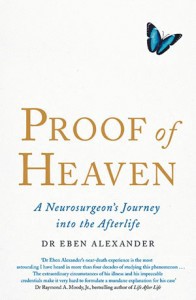
Dr. Eben Alexander, Proof of Heaven
Premise: If readers look to literature to explain questions of mortality and existence, Alexander’s Proof of Heaven delivers all that with a neurosurgeon’s credentials. Written as memoir, Proof tells how the author, a doctor, fell into a coma from spontaneous E. coli bacterial meningitis, and during that brief lapse of consciousness, went to Heaven.
Bullshit: While the existence of an afterlife has yet to be thoroughly debunked, much of Alexander’s claims — including his assertion that he was completely brain-dead for a week and his omission of being placed into a medically induced coma — have not stood up to scrutiny. And Heaven in general might need a fact checker? Alex Malarkey, the quadriplegic car-accident survivor and author of The Boy Who Came Back From Heaven admitted on his personal blog: “I did not die. I did not go to Heaven. I said I went to heaven because I thought it would get me attention.” Sixteen-year-old Malarkey reached out to the media after his book had been making money for the evangelical publishing. (The author of Heaven is For Real, Colton Burpo, maintains that heaven is not malarkey and he did in fact travel there.)
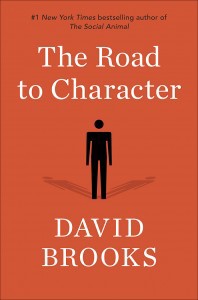
David Brooks, The Road to Character
Premise:
In 1950, the Gallup Organization apparently asked high school seniors: “Are you a very important person?” And in 1950, twelve percent of high school seniors said yes. They asked the same question again in 2005; this time it wasn’t twelve percent, it was eighty percent. David Brooks uses this statistic in almost all of his lectures, interviews, and T.V. spots, and his recently released book, The Road to Character.
Bullshit: Or was it 1989? 2001? Brooks doesn’t seem to be sure. When David Zweig investigated in a Salon article, he found that Brooks would frequently merge the dates he mentioned, or cite the same poll but with different numbers. “Nearly every detail in this passage,” writes Zweig, “is wrong.”
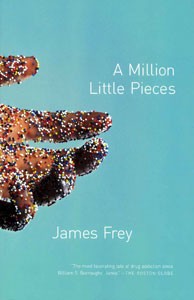
James Frey, A Million Little Pieces
Premise: Alcoholic, addict and self-professed criminal James Frey wrote a searing and honest memoir about his journey to redemption. This memoir, spanning Frey’s junkie past and continuing into his time in rehab, garnered the attention of Oprah Winfrey; with the help of her publicity, A Million Little Pieces sold over 3.5 million copies.
Bullshit: In 2006, James Frey was caught by the investigative site The Smoking Gun; journalists had attempted to find his mugshot and were not able to, and after some searching they realized that Frey exaggerated much of the book. Many of his claims, like being arrested fourteen times, assaulting a cop, and being in jail for three months when he was only there for a few hours, were fudged. He came clean to Oprah, who publicly flayed him on her show.
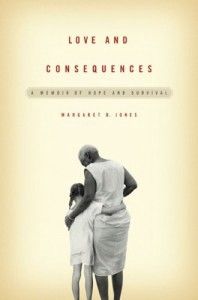
Margaret B. Jones, aka Margaret Seltzer, Love and Consequences
Premise: Jones tells the story of her life as a half white half Native-American girl living in a foster home in a gritty L.A. neighborhood, where she experienced tragedy, poverty, and was recruited to run drugs for the Bloods.
Bullshit: Margaret B. Jones was really Margaret Seltzer, who was known by her friends as Peggy. She had apparently been living with her caucasian biological family in the wealthy San Fernando Valley and attended a private Episcopal day school during the time she was purportedly gangbanging. Seltzer had used the narratives she heard from her experience doing anti-gang community outreach to inform her “memoir.”
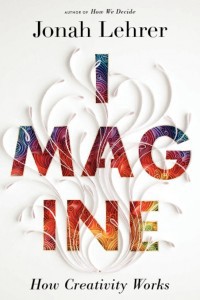
Jonah Lehrer, Imagine: How Creativity Works
Premise:In his wildly successful book, Lehrer included a lost Bob Dylan quote, “It’s a hard thing to describe…It’s just this sense that you got something to say,” to elaborate his thesis on creativity.
Bullshit: Dylan never said this at all. Beyond revealing how Lehrer invented this quote, investigations of his work uncovered Lehrer’s self-plagiarism, ordinary plagiarism, recycling, altering quotations, and factual inaccuracies. These lapses in journalistic ethics prompted NYU professor Charles Siefe to write, after an investigation for Wired and published on Slate: “Lehrer has a cavalier attitude about truth and falsehood.” (And he still does!)

JT “Terminator” LeRoy, aka Laura Albert
Premise: JT LeRoy surfaced on the San Francisco writing scene with a backstory that rivaled his fiction: as New York reported, he was a “teenage hustler who’d been pimped out as a cross-dressed prostitute by his mother at truck stops throughout the South, until he landed on the streets of San Francisco in the early-to-mid-nineties” and published the bestselling novel Sarah. He was often shy in public readings, and if he appeared, he did so in a wig, glasses, and a fedora.
Bullshit: Despite LeRoy’s high profile supporters (Denis Cooper, Mary Karr, Sharon Olds, and Mary Gaitskill among them), LeRoy was revealed to actually be the forty-year-old writer Laura Albert. LeRoy had spoken about Albert indirectly during his interviews; LeRoy ostensibly wrote the lyrics for the band Thistle, whose bandmates use pseudonyms themselves. Astor, the lead guitarist of Thistle, was a stage name for Geoffrey Koop; his wife Laura Albert was known as Speedie. In public performances, Albert enlisted Geoffrey Koop’s half-sister, an aspiring actress, to play LeRoy in full disguise.
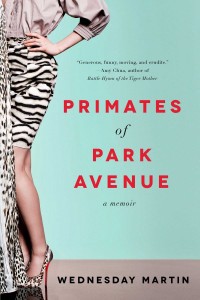
Wednesday Martin, Primates of Park Avenue
Premise: Martin’s recently released exposé of Upper East Side stay-at-home moms was noted for its anthropological insight into the world of elite preschools and the ‘wife bonus,’ a year-end bonus wealthy husbands dole out to their wives depending on good performance.
Bullshit:
According to an article in the New York Post, many details, including the number of years Martin claimed to be living on the UES (three years, not six, as the book claimed), early aughts-set conversations about Uber, and the macaron company Ladurée (both of which only came to New York in 2011) were less than true. On the topic of the wife bonus itself, Martin called bullshit on herself and backpedaled, telling New York: “I don’t necessarily think it’s a trend or widespread. It was just one of the many strange-seeming cultural practices that some women told me about.”
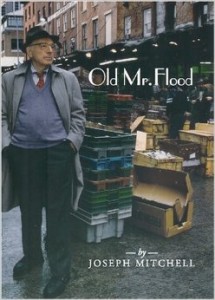
Joseph Mitchell: New Yorker Profiles
Premise: New Yorker
writer Joseph Mitchell was legendary for creating exquisite portraits of oddball New Yorkers like Joe Gould, a homeless man living in Greenwich Village writing the Oral History of the Contemporary World, old Mr. Hugh G. Flood, and Cockeye Johnny Nikanov, a ninety-two-year-old gypsy king.
Bullshit:
According to Thomas Kunkel’s biography of Joseph Mitchell, most of his famous characters, Hugh G. Flood and Nikanov among them, were either composites of multiple characters or complete fabrications. Mr. Flood turned out to be several men telescoped into one, and Joe Gould’s oral history was never fully written. The New Republic review of Kunkel’s biography relates Mitchell’s confession to the New Yorker in-house attorney: “Insofar as the principal character is concerned, the gypsy king himself, it is a work of imagination. Cockeye Johnny Nikanov does not exist in real life, and never did.”
Not that any of this matters, Janet Malcolm argues: “…we are less gifted than Mitchell. The idea that reporters are constantly resisting the temptation to invent is a laughable one. Reporters don’t invent because they don’t know how to. This is why they are journalists rather than novelists or short-story writers. … His impatience with the annoying, boring bits of actuality, his slashings through the underbrush of unreadable facticity, give his pieces their electric force, are why they’re so much more exciting to read than the work of other nonfiction writers of ambition.”

Greg Mortenson, Three Cups of Tea: One Man’s Mission to Promote Peace…One School at a Time
Premise: In 2006, activist and c0-creator of Central Asia Institute Greg Mortenson wrote a book detailing how, through his efforts, CAI created over sixty schools in Pakistan and Afghanistan. The book details how Mortenson, weak from climbing K2, found refuge with the citizens of the Pakistani village of Korphe, and, after they helped him rebuild his strength, he promised to repay the village by building them a school — as well as other stories that cast Mortenson as a hero.
Bullshit:
In 2011, 60 Minutes exposed Mortenson and his co-author David Oliver Relin for fabricating much of the narrative, and outed Mortenson for using the money from his charity on his own travel expenses. According to an article in the Washington Post, “his book turned out to contain large-scale fabrications. Some of the schools he boasted of had no students. Some appeared not to have been built at all.” Even his origin story proved improbable; according to Jon Krakaur’s exposé Three Cups of Deceit, Mortenson would not be able to have wandered from K2 to Korphe, as the geographic location would make it impossible to get to without first arriving at Mortenson’s original destination.

Nasdjjj, The Blood Runs Like a River Through My Dreams + The Boy and the Dog Are Sleeping
Premise
: Nasdjjj’s memoir spans twenty short, novelette-like chapters and details his childhood of domestic abuse, alcoholic parents, homelessness, and life around Indian reservations. An excerpt of this, detailing the story of his adopted, Fetal Alcohol Syndrome-ridden son, was published in Esquire to great acclaim, and launched Nasdjjj’s career.
Bullshit:
In a very Rachel Dolezal twist, the Native American Nasdjjj was actually Timothy Barrus from Lansing, Michigan, an Anglo-Saxon protestant, middle-class writer of gay pornography. Barrus turned to the character of Nasdjjj after Barrus’ other journalistic ventures were rejected by publishers. As he told Esquire in their 2006 expose on the “story of a fraud,” he chose “nasdjjj” because word itself means “to become again.”

Herman Rosenblat: Angel At the Fence, the True Story of a Love That Survived
Premise:
Herman Rosenblat wrote a memoir account of how, as a child in the concentration camp Buchenwald, a young girl would throw him apples over the fence to keep him alive. He would meet this woman years later on a blind date, and they married soon after. Rosenblat’s story gained publicity after he sent in a few paragraphs of what would become Angel at the Fence to a New York Post love story contest; he won the contest and the admiration of Oprah, who invited him and his wife onto her show.
Bullshit: Perhaps because no one wants to question a Holocaust narrative, the false or exaggerated Holocaust memoir has become practically a genre unto itself. Angel at the Fence was never fact checked, and, like Misha: A Memoire of the Holocaust Years, it turned out to be completely fabricated. The author of “Reading With Oprah: The Book Club That Changed America” told the New York Times: “As far as I know, book club selections are not routinely vetted for veracity.”
Photo by Larry Koester
Escape Your Sorry-Ass Life By Becoming A TV Writer, Here's How
“TV agents aren’t looking for worker drones, they want to make you rich so they can commission your giant paycheck. They’re hoping that you can create your own syndicated show some day, so don’t hold back. I also hear a lot of ‘then in episode two, XYZ happens.’ There probably won’t be an episode two. Pack all of your good ideas into episode one.”
— How does an aspiring TV writer get discovered by an agent? Not by sitting around reading the dumbass stuff that idiots put up all over the Internet, that’s for sure. Instead, she should read this advice from a former comedy agent at UTA and WME and then she should stop reading all the dumbass stuff that idiots put up all over the Internet and focus on writing her show. If she’s successful soon enough idiots will be writing dumbass stuff about her on the Internet, which she will never see because she is too smart to read any of the dumbass stuff idiots put up all over the Internet. In fact, maybe we should all just read this advice from a former comedy agent and then turn off the Internet altogether, because apart from this advice the rest of it is just the dumbass fruit of idiot labors and we’re the idiotest of all for partaking of it. Anyway, good luck with your script.
Nothing Is Ever As Good As You Think It Will Be
But why should it be? You suck.

When you look back at your past you see mostly the bad decisions and sorry parts. After a certain age these mount to an almost intolerable level not just because there are so many more of them but because you realize that, with the finite amount of time you have left and your inability to do anything right, they will become the bulk of your legacy in life — to the extent that you will have any legacy in life. (Knowing that there is actually no such thing as a legacy in life and that all eventually comes to dust should, in theory, make the terrible things you’ve done and the awful amount of time you’ve wasted somehow feel less soul-crushing, but theory only counts in particle physics and lit crit.) If you started to draw up a list of your disappointments you might never be fully finished, and the idea of even ranking them seems overwhelming when you consider just how horrible all the things that have happened to and because of you really are, but that doesn’t mean that someone else can’t give it a go. How many of these disappointments are on your own personal list? Tell us on social media or whatever!
"There were so many people in New York City media who have houses here"
“Finding people who wanted to work at the magazine’s headquarters in Hudson, N.Y., wasn’t as challenging as Ms. Miller thought it would be. ‘There were so many people in New York City media who have houses here,’ she said. ‘For a lot of people, this is the absolute dream.’”
The Crater That Was the Pacific Northwest

Unlike many of us, residents of the coastal cities of the Pacific Northwest need not worry about being destroyed by sinking into the ocean after Greenland melts over the next century, the economic calamity and riots that will follow the robotic labor revolution in the next few decades, or slowly starving to death when climate change finishes smothering the food supply years from now. It sounds they’ll be obliterated already: Kathryn Schulz’s piece on “The Really Big One” is a long, unflinching description of how the region will crumble when the catastrophic Cascadian subduction zone earthquake that the Pacific Northwest is overdue for finally hits:
When the next very big earthquake hits, the northwest edge of the continent, from California to Canada and the continental shelf to the Cascades, will drop by as much as six feet and rebound thirty to a hundred feet to the west — losing, within minutes, all the elevation and compression it has gained over centuries. Some of that shift will take place beneath the ocean, displacing a colossal quantity of seawater. (Watch what your fingertips do when you flatten your hand.) The water will surge upward into a huge hill, then promptly collapse. One side will rush west, toward Japan. The other side will rush east, in a seven-hundred-mile liquid wall that will reach the Northwest coast, on average, fifteen minutes after the earthquake begins. By the time the shaking has ceased and the tsunami has receded, the region will be unrecognizable. Kenneth Murphy, who directs FEMA’s Region X, the division responsible for Oregon, Washington, Idaho, and Alaska, says, “Our operating assumption is that everything west of Interstate 5 will be toast.”
In the Pacific Northwest, everything west of Interstate 5 covers some hundred and forty thousand square miles, including Seattle, Tacoma, Portland, Eugene, Salem (the capital city of Oregon), Olympia (the capital of Washington), and some seven million people. When the next full-margin rupture happens, that region will suffer the worst natural disaster in the history of North America. Roughly three thousand people died in San Francisco’s 1906 earthquake. Almost two thousand died in Hurricane Katrina. Almost three hundred died in Hurricane Sandy. FEMA projects that nearly thirteen thousand people will die in the Cascadia earthquake and tsunami. Another twenty-seven thousand will be injured, and the agency expects that it will need to provide shelter for a million displaced people, and food and water for another two and a half million.
What kind of natural disaster do you want to die in?
Map of the Cascadia subduction zone via Wikimedia
How To Be A Wedding Singer
“Being a wedding singer is possibly, by far, the best job I’ve ever had. Not only is singing ‘Don’t Stop Believing,’ to a crowd of people gathered in celebration both easy and fun, it’s made me a better musician.”
— Wedding sing now, ask me how.
Moments from True Detective Season 2 Episode 4, Ranked
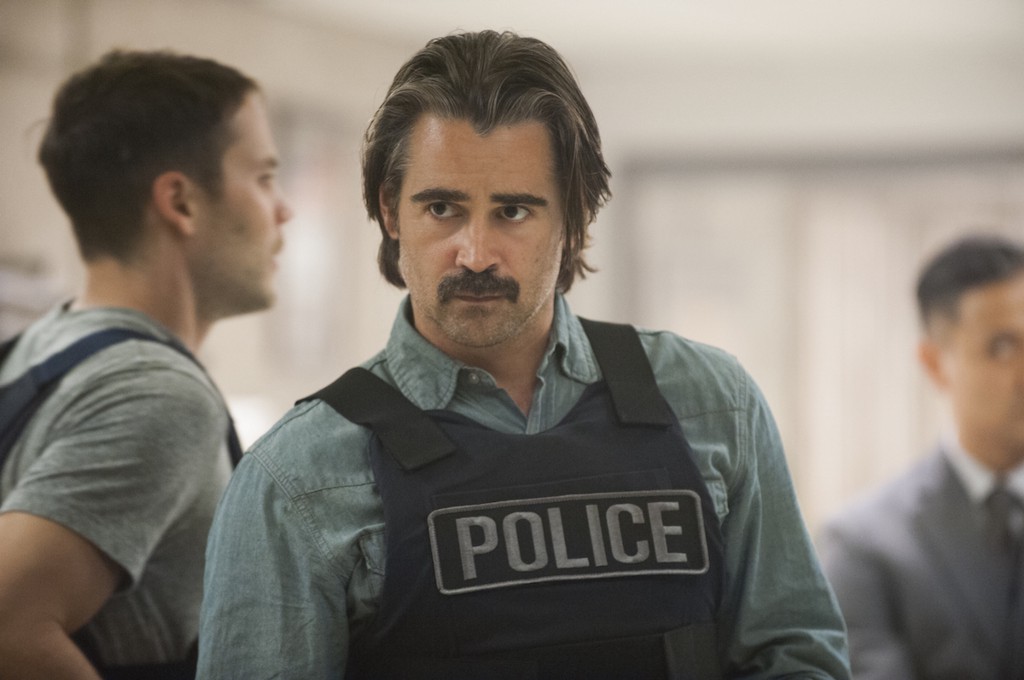
11. Man asks another man if he “knows the world ‘louche.’”
10. Man intimidates another man by saying, “I’ve never lost a tooth… never even had a fuckin cavity.”
9. Man says of adopting a child, “I don’t do somebody else’s time… at least with your kid, it’s your sins.”
8. Man says to woman, “You know as well as I do no grown woman in her right mind would date a cop.”
7. Man triggers police cruiser lights to get through traffic while man in passenger seat takes swigs from a bottle of Smirnoff vodka.
6. Man says to another man, “Sometimes your worst self is your best self, know what I’m saying?”
5. Man with a double-mortgaged home, double-mortgaged business, and entirely leveraged five million dollars in savings with no liquidity to speak of continues to drink Johnnie Walker Blue at every opportunity.
4. Man asks another man to make a deal as a singer sings, “The kind of man who’d ask me then if he could make a deal.”
3. A man racked with guilt over doing SOMETHING with another man seizes opportunity to marry his suddenly pregnant girlfriend immediately after this exchange: “Aren’t you on the pill?” “It’s not a hundred percent.”
2. Woman confronted over a cut-and-dry breach of ethics so that her character can adopt a position of righteous indignation about how “this would not be happening to a man.” Man says to her, “Imagine that — you adopting a positing of righteous indignation.”
1. Man who constantly, selfishly grapples with his own problems to the inconvenience of everyone who is supposedly important to him says to another man with more present and pressing problems, “You’re a survivor… everything else is dust in your eyes. Just blink it away, man.”
Müller/Roedelius, "Time Has Come"
“Without Hans-Joachim Roedelius no Krautrock, they say. No Nature electronics, Ambient no, no and no Harmonia Cluster. Despite and because of all this music historical achievements of the creators of electronic wellness landscapes is as far from in his 81st year running. ‘Time Has Come’, Roedelius announced now, together with the Paris-based musician Christoph H. Müller. The equation minus times minus gives plus following, Müller tries with the Gotan Project since the late nineties at the junction of tango and dance music clichés. Roedelius, the pleasures of the couple dance anyway never averse, can be cheating on the first signs of a common album tender lounge percussion and didgeridoo bass under his piano chords. What unfolds further cooperation of the two, will be in September on Imagori — the album title is an anagram of origami — be heard.”
— Google Translate is still a work-in-progress, but then I guess so are we all. Anyway, this is gentle and pretty and calming and maybe just what you need to get yourself ready to face a new week. Take a deep breath and enjoy.
